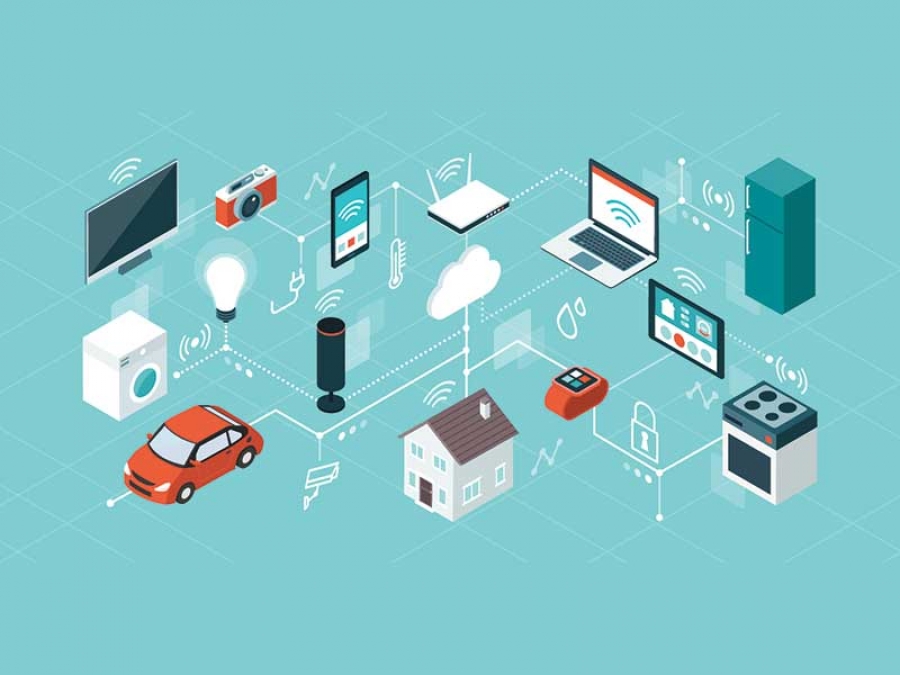Интернет вещей (IoT) произвел революцию в том, как мы взаимодействуем с технологиями, открыв путь к взаимосвязанным умным устройствам, которые повышают удобство, эффективность и уровень связи в нашей повседневной жизни. В этой статье мы рассмотрим влияние IoT и то, как умные устройства меняют различные сферы нашего мира.
Понимание интернета вещей (IoT)
Интернет вещей — это сеть физических объектов, оснащённых датчиками, программным обеспечением и средствами связи, позволяющими им собирать и обмениваться данными через интернет. Эти объекты могут варьироваться от бытовой техники и носимых устройств до промышленного оборудования и инфраструктуры умных городов.
Ключевые компоненты IoT
Экосистема IoT включает несколько основных элементов:
- Устройства: Физические объекты, оснащённые датчиками и средствами связи для взаимодействия с окружающей средой.
- Связь: Беспроводные или проводные сети, обеспечивающие передачу данных между устройствами и системами.
- Обработка данных: Облачные платформы и системы периферийных вычислений анализируют данные и извлекают из них полезные инсайты.
- Приложения: Программные интерфейсы, позволяющие пользователям удалённо контролировать и управлять IoT-устройствами.
Влияние умных устройств на нашу жизнь
Умные устройства на базе технологий IoT значительно повлияли на различные аспекты современной жизни:
1. Умный дом
Устройства для умного дома, такие как термостаты, системы освещения и камеры безопасности, обеспечивают удобство и энергоэффективность, автоматизируя задачи и позволяя управлять ими удалённо через смартфоны.
2. Здравоохранение
Устройства IoT, например фитнес-браслеты и системы удалённого мониторинга пациентов, позволяют вести непрерывный контроль состояния здоровья, предоставлять персонализированное лечение и выявлять проблемы на ранних стадиях.
3. Транспорт
Подключённые автомобили, оснащённые IoT-датчиками, оптимизируют движение на дорогах, повышают безопасность водителей и предоставляют навигацию в реальном времени с учётом дорожной ситуации.
4. Сельское хозяйство
Применение IoT в сельском хозяйстве, также называемое «умным фермерством», использует датчики для мониторинга состояния почвы, автоматизации полива и оптимизации урожайности на основе анализа данных.
5. Промышленная автоматизация
В промышленности автоматизация на базе IoT повышает эффективность работы, обеспечивает предиктивное обслуживание и отслеживание активов, сокращая простои и оптимизируя использование ресурсов.
Проблемы и аспекты, требующие внимания
Несмотря на трансформационный потенциал, внедрение IoT связано с вызовами в области безопасности данных, совместимости систем и вопросов конфиденциальности. Решение этих проблем крайне важно для полного раскрытия возможностей технологий IoT.
Заключение
Интернет вещей открыл новую эру связности и инноваций, изменив то, как мы живём, работаем и взаимодействуем с окружающим миром. По мере того как умные устройства продолжают развиваться и распространяться, ответственное использование IoT станет ключом к раскрытию его огромного потенциала для более умного и эффективного будущего.
Будьте в курсе и изучайте возможности IoT, чтобы извлекать из них пользу и одновременно безопасно ориентироваться в сложностях связанного мира.
